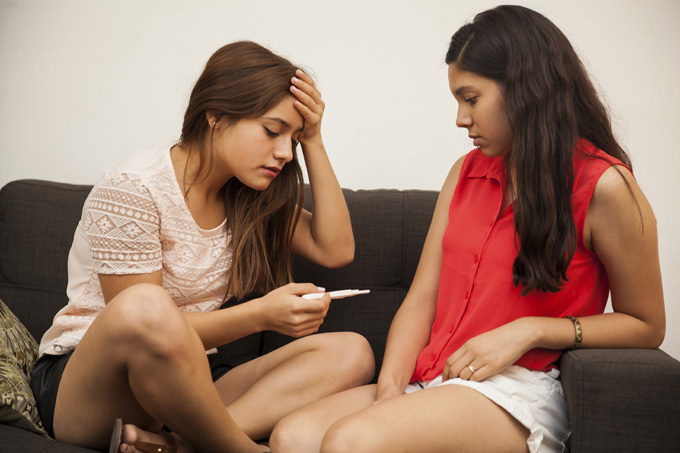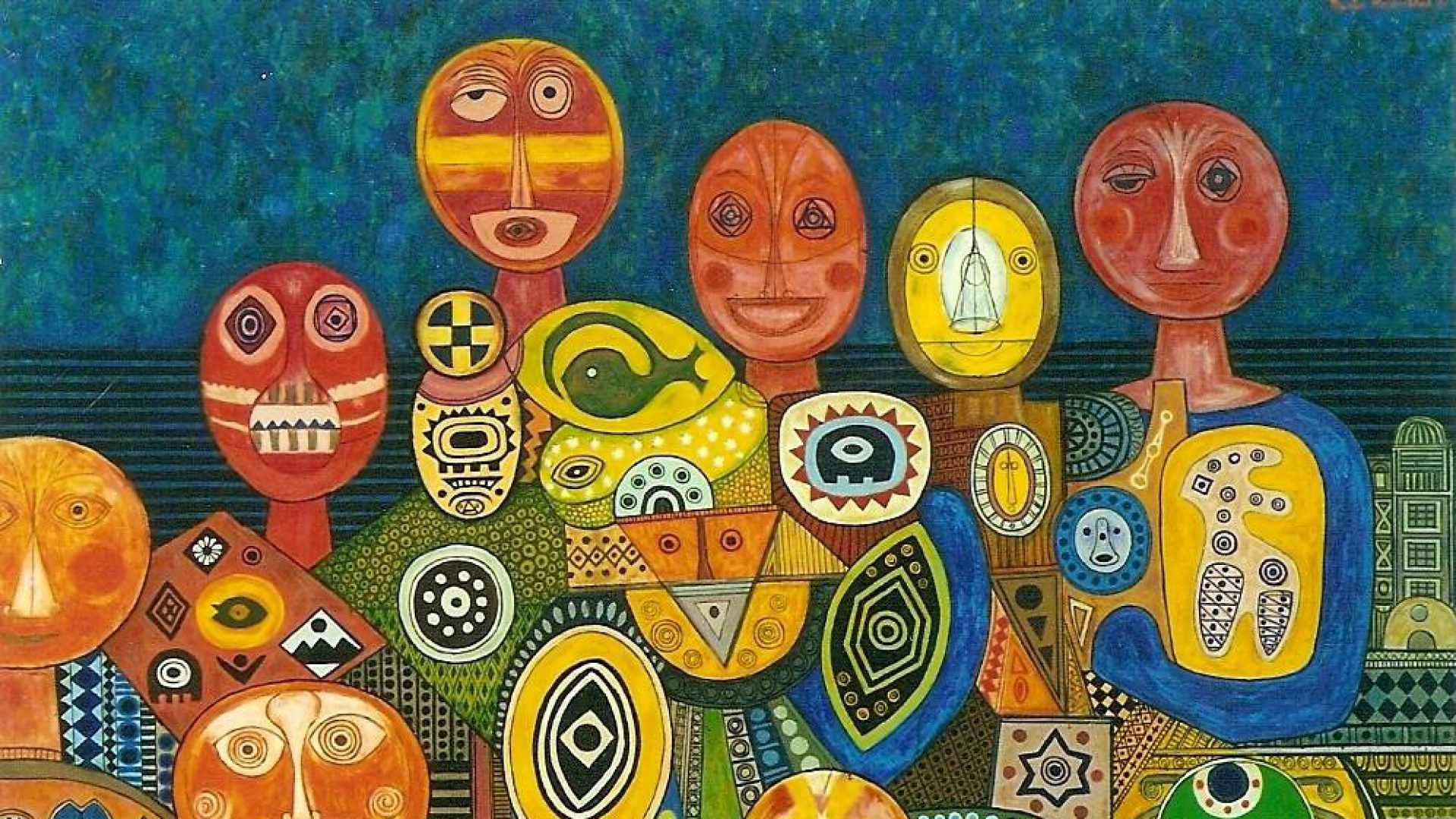
July 14, 2006
By Elaine Rivera
http://juantornoe.blogs.com/hispanictrending/2006/07/page/6/
In a non-descript building in the South Bronx, a group of teenagers sit around a table and rattle off when they gave birth: Sixteen, says Leslie; Sixteen, as well, says Andrea; Thirteen, says Destiny, now the mother of a four-year-old son.
As teenage mothers, their struggles seem endless – from how to stay in school, obtain decent child care, and making ends meet.
“There’s something you have to deal with every day,” Andrea said. “You just have to figure out how to make it.”
The young women are part of a group of Latina and African American teenagers who come together at Sistas on the Rise, a non-profit advocacy organization that helps young women of color deal with teenage motherhood and helps them to try and change a cultural and societal system that often neglects their needs.
“Just because you become a teenage mother doesn’t mean your life is over but it changes your life forever,” said Yomara Velez, the organization’s founder, “You have to reach out even harder because you have to provide for your children and you also need to fulfill your dreams.”
Velez, now 30, has had first-hand experience. At 19, she had her son and struggled to finish college. Away from her family, Velez said she had no immediate support system. She had to work four jobs, juggle to find adequate day care – and days when she did not – she would have to take her son to classes – much to the chagrin of her professors.
“I realized how difficult it was to be a young, single mom,” said Velez, who started the group four years ago. “I wanted to do something about it.”
Velez knows how challenging her mission is. While teenage pregnancy rates are down overall, Latinas continue to have a much higher birth rate than their white and black counterparts. In New York City, there were 4,813 live births to Latina teenagers compared to 2,981 for blacks and 650 for white female teenagers in 2004, according to the New York City Department of Health and Mental Hygiene.
Advocates say that the high birth rate is a major factor why so many Latinas are forced to drop out of high school since many cannot find adequate day care. In 2004, the Latino drop out rate in New York City was 20.6 percent compared to 17.7 percent for blacks, 10.6 percent for whites and 9.5 percent for Asian students. While the city’s Department of Education does not break down the numbers by gender, an analysis by the Pew Hispanic Center based on 2000 U.S. Census data showed that in New York state native-born Latinas had a 3.8 percent drop out rate and foreign-born Latinas a 10.7 percent drop-out rate – higher than that of black and white female teenagers.
Educators and researchers say that Latina teenagers, particularly those who are first and second generation, encounter overwhelming obstacles and cultural barriers that may be reasons why they also have the highest attempted suicide rate among any adolescent group. Compounded by higher teenage pregnancy and high school drop out rates, these first and second-generation Latinas from low-income backgrounds are struggling, they say.
Experts say it is a confluence of issues that has created what they describe as a rigid, suffocating and paradoxical life for many of these young women. They often clash with their parents’ traditional values while trying to live in an American society that allows much more freedom for young women.
Dr. Luis H. Zayas, a professor at Washington University in St. Louis, says young Latinas are socialized to guard their virginity and chastity.
“The girls become much more vulnerable,” said Zayas, who is spearheading a New York based study on why Latinas have the highest attempted suicide rate among American teens. “Boys in our cultures are expected to sow their wild oats. They can go out and experiment but the girls can’t.”
They also face cultural taboos and religious restrictions that prevent them from either openly discussing sex, contraception or choosing abortion if they get pregnant. Subsequently, young Latinas are at greater risk of not only getting pregnant but being infected with the AIDS virus and other sexually transmitted diseases.
“Our best friend in Latino culture is denial,” said Velez, who is Venezuelan and Puerto Rican. She said she had a typical experience as a first-generation Latina: sex was never discussed at home and when she got pregnant she was given no choice over what she was going to do.
“My parents told me I either had to get married or move back home with them,” Velez said. “Abortion was not an option. For my mother, that was a big sin.”
Sixteen-year-old Christy, a senior high school student in the Bronx who works at the advocacy organization, also said there was never any discussion with her family about sex or contraception. She said when she began menstruating, she was terrified.
“I didn’t know what it was,” Christy recalled. “I thought I was dying. That’s when my grandmother told me I was becoming a woman.”
Wanda Diaz, director for family health programs for The Committee for Hispanic Children and Families, Inc., said in March the agency launched a sex education program in the South Bronx for both teenage Latinos and their parents. Diaz said the program was created after statistics showed that, in 2003, there were 6,495 pregnancies among teenagers, a majority being Latinas, in one area code alone – 10468 – far higher than any other area in the city.
“Sexual issues are not discussed in many Latino families,” Diaz said. “If they can’t talk about it at home, teens are going to talk about it with their friends and peers and they may not get the right information.”
And because of the strict gender roles, many young women, when they do get pregnant, choose to have the baby because they feel there are no other opportunities for them, educators say.
“It’s a Catch-22 – we as Hispanics don’t want them to get pregnant, but if they do, we try to be supportive of them during pregnancy,” said Dr. Jane Delgado, author of “Salud: A Latina’s Guide to Total Health” and president and CEO of the National Alliance for Hispanic Health. “These girls don’t see a future, but a baby is a future and they feel like they’ve accomplished something when they do get pregnant.”
For Velez, however, their educational futures can get easily derailed because of family pressures along with a lack of resources.
“I think that’s why so many teen moms drop out of school,” she said. “There is this sense that once you become a mother all of a sudden you as a human being stop existing – it’s all about the child. Your role as a mother takes over your womanhood.”
Through Sistas on the Rise, Velez and the young mothers who are working with her are trying to change that. They are fighting for more high schools that accommodate high school mothers. They are pushing for more consistent and better child care services that help them get affordable housing.
“This is not an individual problem – this is a community problem and we’re trying to teach them how to connect the dots,” Velez said. “We want to create a space where young women learn to advocate for themselves and learn how they can improve their situations.”
Source: El Diario / La Prensa
